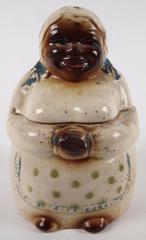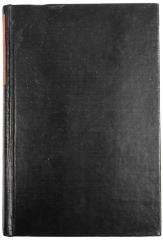Comments and Tags
Be the first to comment on this item!
Books
African American History Books
American Civil War
Black History ➔ Book, Uncle Tom's Cabin
Identifier:
123768Description:
Stowe, Harriet Beecher. Uncle Tom's Cabin. New York: Hurst and Company.Uncle Tom's Cabin or Life Among the Lowly is an anti-slavery novel by American author Harriet Beecher Stowe. Published in 1852, the novel "helped lay the groundwork for the Civil War", according to Will Kaufman. Stowe, a Connecticut-born teacher at the Hartford Female Academy and an active abolitionist, focused the novel on the character of Uncle Tom, a long-suffering black slave around whom the stories of other characters both fellow slaves and slave owners revolve. The sentimental novel depicts the reality of slavery while also asserting that Christian love can overcome something as destructive as enslavement of fellow human beings. Uncle Tom's Cabin was the best-selling novel of the 19th century, and the second best-selling book of that century, following the Bible. It is credited with helping fuel the abolitionist cause in the 1850s. In the first year after it was published, 300,000 copies of the book were sold in the United States alone. In 1855, three years after it was published, it was called "the most popular novel of our day." The impact attributed to the book is great, reinforced by a story that when Abraham Lincoln met Stowe at the start of the Civil War, Lincoln declared, "So this is the little lady who started this great war." The quote is apocryphal; it did not appear in print until 1896, and it has been argued that "The long-term durability of Lincoln's greeting as an anecdote in literary studies and Stowe scholarship can perhaps be explained in part by the desire among many contemporary intellectuals ... to affirm the role of literature as an agent of social change." The book, and even more the plays it inspired, also helped popularize a number of stereotypes about black people, many of which endure to this day. These include the affectionate, dark-skinned "mammy"; the "pickaninny" stereotype of black children; and the Uncle Tom, or dutiful, long-suffering servant faithful to his white master or mistress. In recent years, the negative associations with Uncle Tom's Cabin have, to an extent, overshadowed the historical impact of the book as a "vital antislavery tool."
Date:
circa 1880Materials:
PaperDimensions:
6"" h 4.5"" w 1.5"" dCurrent Location Status:
In StorageCollection Tier:
Tier 2Source:
Gift Of Mrs. Jennie DeglopperLinks:
http://en.wikipedia.org/wiki/Uncle_Tom's_CabinExhibits/Programs:
Thank God for Michigan: Stories from the Civil War (June 6 2011 – March 29 2015)Thank God for Michigan was an exhibition developed by the GRPM to commemorate the sesquicentennial of the Civil War. The exhibit featured over 150 artifacts from the GRPM's collection and told the story of the Civil War through the lens of soldiers and civilians from Michigan.
Changing America (May 25 – October 13 2019)
Changing America: The Emancipation Proclamation, 1863, and the March on Washington, 1963, examines the relationship between two great people’s movements, which both grew out of decades of bold actions, resistance, organization, and vision. One hundred years separate them, yet they are linked in a larger story of liberty and the American experience – one that has had a profound impact on the generations that followed.
The GRPM added artifacts and stories to the exhibition to give it an additional local perspective. In addition to artifacts from the GRPM Collections, many artifacts on display are on loan from the Grand Rapids African American Museum and Archives. Local stories are told through the eyes of our community in the form of oral histories and a place for visitors to share their own stories.
Changing America: The Emancipation Proclamation, 1863 and the March on Washington, 1963 was created by the Smithsonian’s National Museum of African American History and Culture and the National Museum of American History in collaboration with the American Library Association Public Programs Office. The exhibition is made possible by the National Endowment for the Humanities (NEH).
Related Entities:
Harriet Beecher Stowe (creator)Harriet Elisabeth Beecher Stowe, born in 1811, was an American abolitionist and author. Her most popular work is Uncle Tom's Cabin which was a novel depicting the cruel conditions for enslaved African Americans. It was also adapted as a play. Stowe wrote at least 30 books in her lifetime and passed away in 1896. Jennie DeGlopper (donor)



